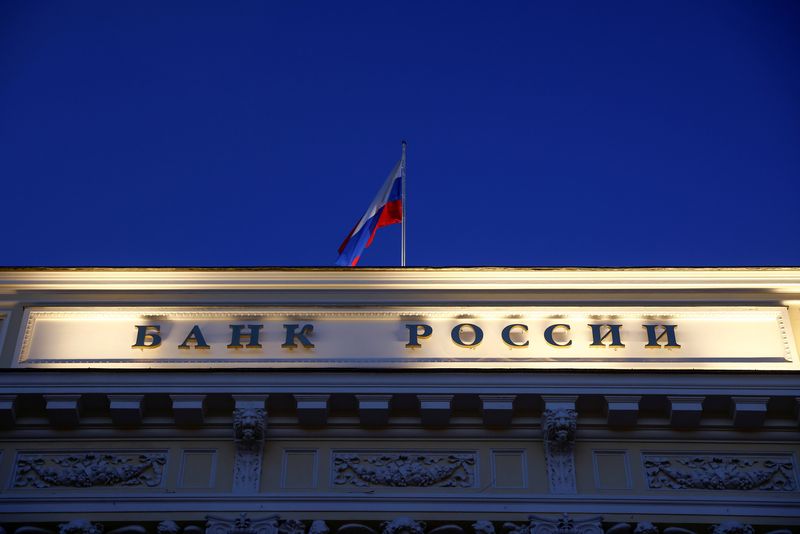MOSCOW (Reuters) -Russia’s central bank hiked its key interest rate by 350 basis points to 12% on Tuesday, an emergency rate move to try and halt the rouble’s weakening past 100 to the dollar after a public call from the Kremlin for tighter monetary policy.
The extraordinary rate meeting came after the rouble plummeted past the 100 threshold against the dollar on Monday, dragged down by the impact of Western sanctions on Russia’s balance of trade and as military spending soars.
President Vladimir Putin’s economic adviser Maxim Oreshkin on Monday rebuked the central bank blaming what he called its soft monetary policy on the weakening rouble.
Hours after Oreshkin’s words, as the rouble dived towards the 102 mark against the dollar, the bank announced the emergency meeting, throwing the currency a lifeline.
“Inflationary pressure is building up,” the bank said in a statement on Tuesday. “The decision is aimed at limiting price stability risks.
“The pass-through of the rouble’s depreciation to prices is gaining momentum and inflation expectations are on the rise.”
The rouble pared some intraday gains after the decision, up 0.9% at 96.79 as of 0748 GMT.
The bank last made an emergency rate hike in late February 2022 with a rate raise to 20% in the immediate fallout of Russia’s despatching troops to Ukraine. The bank then steadily lowered the cost of borrowing to 7.5% as strong inflation pressure eased in the second half of 2022.
Since its last cut in September 2022, the bank had held rates but steadily increased its hawkish rhetoric, eventually hiking by 100 basis points to 8.5% at its last scheduled meeting in July. The next rate decision is due on Sept. 15.
Russia saw double-digit inflation in 2022 and after a deceleration in the spring of 2023 due to that high base effect, annual inflation is now above the central bank’s 4% target once more and quickening.
In annualised terms on a seasonally adjusted basis, current price growth over the last three months amounted to 7.6% on average, the bank said.
(Reporting by Reuters; Writing by Alexander Marrow; editing by Guy Faulconbridge)








